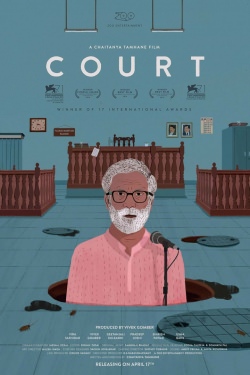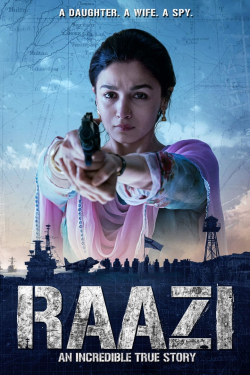Top Rated Films
Rahul Desai's Film Reviews
-
I suspect I will be reviewing Baaghi 8 in the near future. Perhaps by then, Hindi cinema will have moved on from believing that the Indian Army is composed of heartbroken college boys who decide to substitute women for country.
-
Rough Book fails to be an affecting and timely film. Its lack of relevance lies in its first-bencher, textbook interpretation of India’s most legal epidemic.
-
Te3n is far more competent than the similarly themed Wazir this year, but is nowhere near as smart as it pretends to be. It holds your gaze, and sucks you into the chase, only to shy away and go home with bat and ball once you get too close. At best, the film is an honest attempt at being dishonest – a slow and middling effort, given the remarkable resources at hand.
-
The words “Love never hurts, love heals,” shine bright in the final frame, thereby proving that this film is like that mysterious facebook friend (you don’t remember why and when you added this creature) who keeps sharing emo Archie-card forwards on their wall in ghastly sMs LiNgO.
-
I’ve seen worse, but to put things into perspective: The director’s earliest Hindi film was the delightful ‘Mumbai Meri Jaan’. This was before he discovered that making movies is a very lucrative business.
-
The fortunate thing about Jai Gangaajal is that its politics is a bit more generic and easier to decode than Jha’s previous efforts. But the unfortunate part is that it’s just another 158-minute long Prakash Jha movie.
-
…we’ve seen it impersonating so many Indian properties on screen over the years that it now feels more like a party plot in Thane.
-
This isn’t the first time Rai has left us gasping for more at interval point, only to overindulge with his treasure trove of actors. Tanu Weds Manu derailed similarly with some strange behavior-powered formula, and Raanjhanaa self-immolated with passion and soul. Mr. Sharma is a skilled writer as far as situational awareness is concerned. Now only if he can string lesser situations together in a more coherent manner.
-
Had this universe existed in a film not directed by Kashyap, I suspect it would have been appreciated more. But his voice precedes him, for he represents a fearless brand of Indian cinema. In this context, Bombay Velvet is a moderate Hollywood imitation; significant for the craft it brings on screen, but little more than an excessive footnote in a universal genre. I’d rather revisit On The Waterfront or Goodfellas instead.
-
This is the kind of seedy effort that makes me wonder if director Dholakia wrapped up shooting every night, met friends at a bar and cackled at lewd jokes about which body part got maximum screen time. Before another male director has Leone play a nurse so that innuendos revolve around body exams and instruments, I suggest a blanket ban on bananas and Indian sex comedies.

























